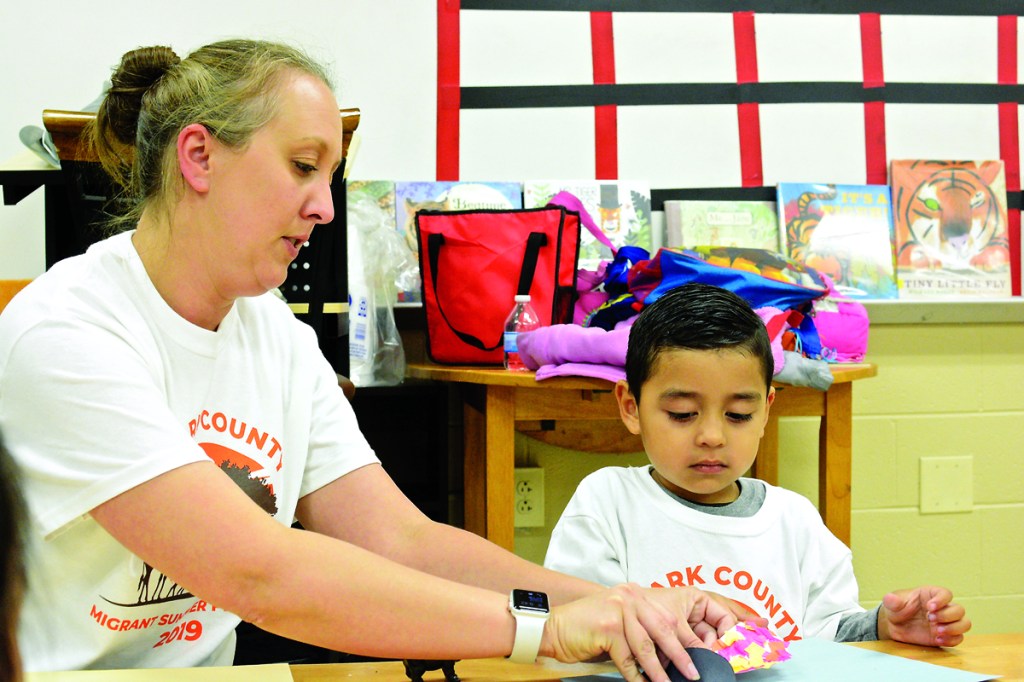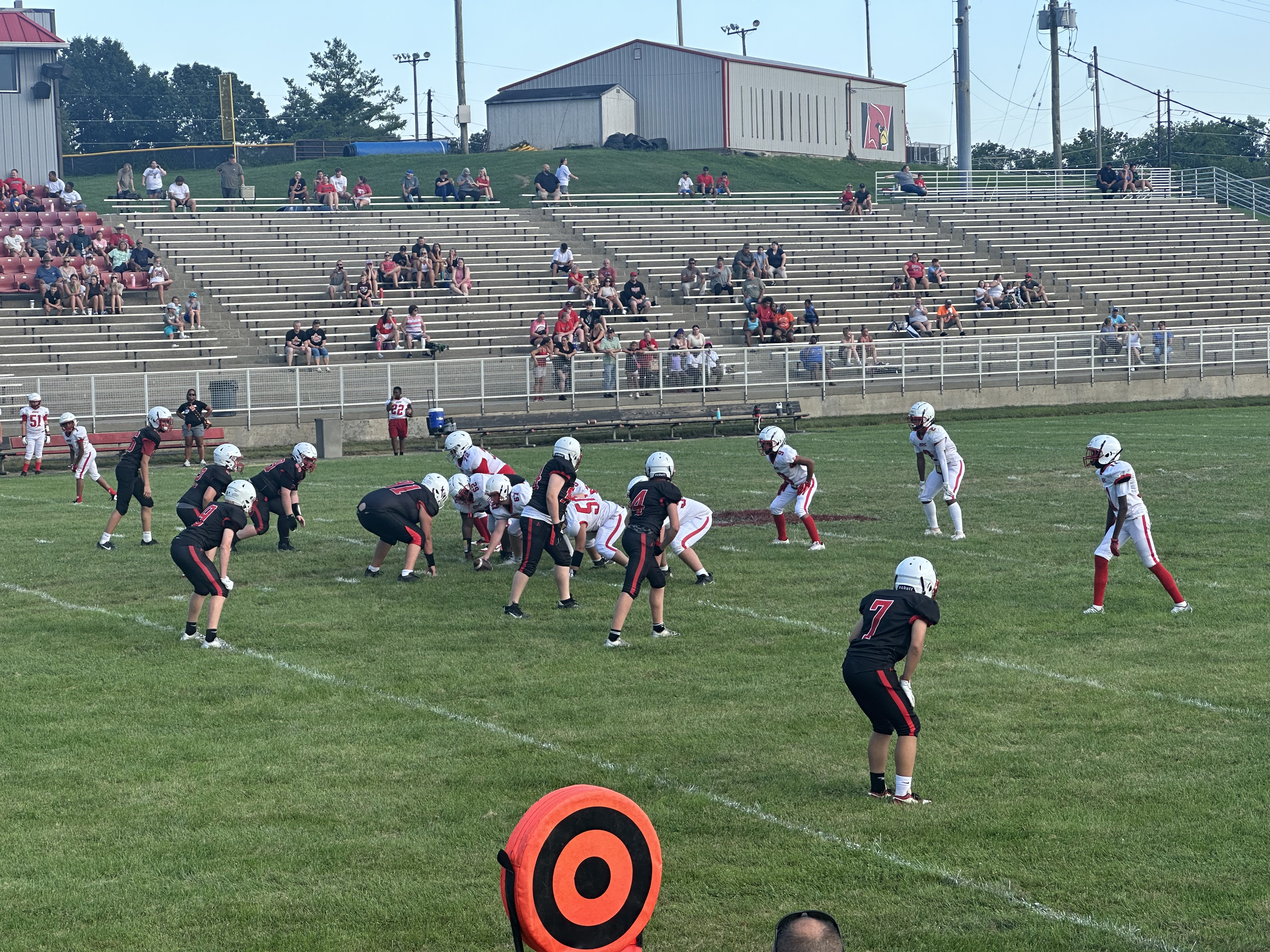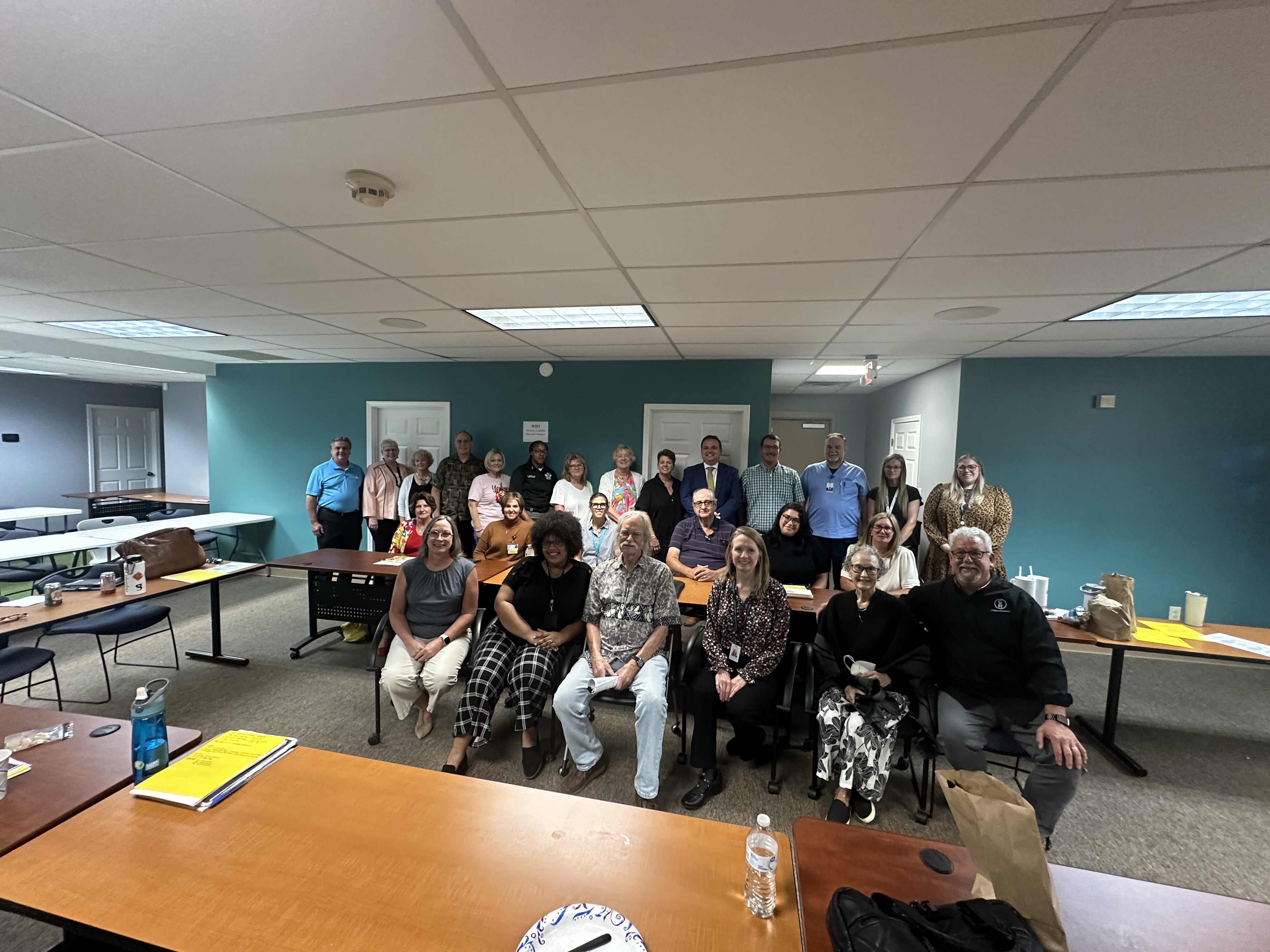CCPS helps migrant children catch up with peers
Published 11:32 am Wednesday, June 12, 2019

- Rachel Click, a teacher during the Clark County Migrant Education Program's summer camp, helps Yamir with his art project Monday. (Photo by Lashana Harney)
The students in the Clark County Migrant Education Program are like birds in the winter.
Their families move — or migrate — from near or far, not to escape the cold, but to work.
They’re migrants. And migrant doesn’t mean immigrant.
Trending
That’s the concept Madeline Potter tries to relay to the community when talking about the Clark County Migrant Education Program.
Potter, a migrant recruiter and advocate with the program, said the program has been around since the 1960s. It started as a way to help students who recently moved into the county and typically came from families who moved for work, often farming. Since migrant students move so much, they often fall behind in school.
The migrant education program helps students catch up with their peers.
To this day, Potter said, they help hundreds of families adjust to their new life in Clark County, ensuring students don’t fall behind in school while also connecting their families to the numerous resources in the community.
“A lot of times when they first get here, they might need to get some shot records or get their shots, get dental appointments, get eye appointments, anything like that, we get them connected,” Potter said. “… If they need food, there’s a lot of different resources in the community that we can help them get food.”
Potter said they help students from age 3 to 21. The goal is to set students up for success, pushing them to graduate high school. though, they also have a few out-of-school youths, who have migrated to Clark County to work.
Trending
“They haven’t graduated high school, and we help them with things like life skill lessons, or English lessons,” Potter said. “When I say life skills, I mean setting up a bank account, that kind of stuff. We connect them with community resources to doctors offices, all that.”
Students can be in the program, which is funded through a grant, for up to three years. After three years, students and families should be comfortable enough to navigate the community on their own, but, Potter said, they’ll always point people in the right direction if they need it.
“We’re mostly about connecting them to places and helping them to become self-sufficient,” Potter said.
Potter said the program tries to recruit families by working with Mexican grocery stores, the Family Resource Centers and local farmers. With the resurgence of the hemp industry, many students in the program have parents who work on hemp farms.
“They have to qualify by having moved across county lines, and they have to do certain types of work,” Potter said.
The program also has parent involvement meetings, during which the program brings the parents in and talk about things they want to learn. One thing parents requested help with was learning about how to use Infinite Campus, Potter said.
“Two different times over the years, we’ve had the district contact at the board come in, and she posted a lesson, and we did it in the computer lab and interpreted everything,” Potter said.
“So parents can now access that. So that’s some of the stuff we do with our parent involvement. And then we have a Parent Advisory Council, which is kind of like a PTA. And it’s just certain members that chose to be on the council, and they have a lot of input.”
Throughout the year, the County Migrant Education Program also provides tutoring, college and career counseling, interpreting and translating services and more. Every staff member involved in the program is bilingual, Potter said.
The program also helps connect students with scholarships for various summer camps and other extracurriculars. Each year, the program raises funds to send one student on the annual eighth-grade field trip to Washington D.C., which costs more than $500 per student. The program also sends students to a STEM camp, which the University of Kentucky hosts every summer.
The program hosts a camp of its own. It’s often the highlight of the year for its 45 participating students.
This year’s summer camp theme, which is at Campbell Jr. High School, is “Safari Camp.” Throughout the three-week camp, students are studying animals, habitats, environments, ecology, botany and art.
“The goal of the summer camp is to prevent the summer slide,” Potter said. “So they’re still getting some instruction over the summer and they don’t lose it when they’re just sitting at home, doing nothing.”
Students also visit educational sites and welcome guest speakers to the camp.
“We give them a lot of experiences they might not have gotten otherwise because their parents are working all the time,” Potter said. “We take them on field trips. We went to the (Explorium Children’s Museum). They went and painted pottery at Created By You downtown. They go to cooking classes at the UK extension office every week. They go to the Rowland Arts Center every week. They’re going to the library to one of their summer shows. We’re going to Lake Reba, Paradise Cove, as long as the weather cooperates.”
Potter said the program, overall, continues to grow. For the past six years, Potter watched as students got more involved in extracurricular activities.
She also helps people in the community learn more about the program now, which has enabled them to receive more support as well as allowed the program to make new partnerships.
Potter said, she’d like to widen the program’s impact, though, to help more students and more families.
“We’re always welcoming donations for things. Some businesses, like Bojangles, donated some gift cards that we were able to give out to our families,” Potter said.
Winchester is a hub for agriculture, especially hemp, and to support that industry, everyone must support the workers and their families who come to help the community and industry thrive, Potter said.
“We’re going to have lots of migrant students, and you want your migrant students to be educated and to feel comfortable in the community,” Potter said. “You don’t want them dropping out of school … You want kids who are thriving. You want them to feel comfortable to thrive and have goals, go to college.”
Without the Clark County Migrant Education Program, it’s a lot. It’s a lot to come to some faraway place, to move once again to a new community, Potter said.
“The more help these kids can get, the more likely they are to be successful,” she said.
Many of students Potter has worked with have gone on to be contributing members of the community.
“We have students that are becoming teachers, that are going into the medical field, that are taking advantage of the program to be a welder, to be a carpenter,” Potter said. “It’s amazing because, without some intervention, they might not have done all that.”







